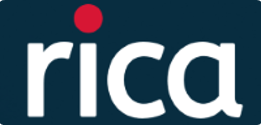Paths of Interdisciplinarity: reflections on a fleeting topic, but essential for education in the 21st century
Keywords:
interdisciplinarity, curricular contextualization, skills, competencesAbstract
This article reflects on interdisciplinarity and its applicability from the author's personal experiences, bringing the contribution of several researchers who provided recognized contributions to the subject. The reflections in the text seek to give consistency to a fleeting theme, contributing to the establishment of partnerships between professionals from different fields, in order to propose interactive and collaborative activities that involve an interdisciplinary approach, essential for the formation of professionals able to promote overcoming a restricted or fragmented view of the world and applied sciences. It is highlighted that education plays a vital role in building a bridge between research centers and population, but need to focus teaching activities in developing skills and competencies using content as a tool but not as the central purpose of pedagogical practice. A competent individual will know to apply knowledge of science and technology and scientific research procedures in different contexts, seeking satisfactory alternatives to new situations as they arise.
References
VILLAS-BOAS, V. ;MARTINS, J. A.; BOOTH, I.A.S.; GIOVANNINI JR., O.; CATELLI, F.; LIMA, I. G.; SAUER, L. Z. Novas metodologias para o Ensino Médio em Ciências, matemática e Tecnologia in VILLAS-BOAS, V. ;MIOTTO, F.; MARTINS, J. A (org.) Novas metodologias para o Ensino Médio em Ciências, matemática e Tecnologia, Brasília : Abenge, 2011.
FAZENDA. I. C. A. Interdisciplinaridade: um projeto em parceria. São Paulo: Loyola, 2002.
FAZENDA, I. C. A. Metodologia da Pesquisa Educacional. São Paulo: Cortez, 1997.
CUNHA, G.F.; LEMOS, S. D. C.; DORNELES, L.T.; RIBEIRO, A.G.; SPECHT, A.; PARMEGIANI, R.; LORENZI, R. M. P. L. Práticas Interdisciplinares em Ciências Biológicas. Blog Teliga.net, 2008. Disponível em: http://www.teliga.net/2008/10/prticas-interedisciplinaresem-cincias.html, acesso em 19/04/2014.
LÜCK, H. Pedagogia interdisciplinar: fundamentos teóricometodológicos. Petrópolis, RJ: Vozes, 1994.
SANTOS, B. S. Pela Mão de Alice: o social e o político na pósmodernidade. São Paulo : Cortez, 1997.
PILLAR, A. D. Criança e televisão: leituras de imagens. Porto Alegre: Mediação, 2001.
SALOMÃO, J. Prefácio in JAPIASSU, H. Interdisciplinaridade e a patologia do saber. Rio de Janeiro: Imago, 1976.
MORIN, Edgar. Ciência com consciência. 7. ed. Rio de Janeiro: Bertrand Brasil, 2003.
JAPIASSU, H. Interdisciplinaridade e a patologia do saber. Rio de Janeiro: Imago, 1976.
HOBSBAWM, E. Era dos estremos: o breve século XX: 1914-1991. São Paulo : Companhia das Letras, 1991.
WIKIPEDIA, Verbete: The Big Bang Theory, disponível em http://pt.wikipedia.org/wiki/The_Big_Bang_Theory, acesso em 19/04/2014.
SWIFT, J. Viagens de Gulliver. São Paulo : Abril Cultural, 1983.
ARIÉS, Philippe. História social da criança e da família. Rio de Janeiro : Guanabara Koogan, 1981.
CUNHA, G.F. Interação e Meio: a filtragem do mundo. Porto Alegre : UFRGS, 1999. Tese (Doutorado). Universidade Federal da Rio Grande do Sul. Faculdade de Educação.
JACQUARD, Albert. A herança da liberdade: da animalidade à humanitude. 1ed. Lisboa : Publicações Dom Quixote, 1988.
MEDEIROS A.; MEDEIROS C. Einstein e a Educação. São Paulo: Livraria da Física; 2006
DORNELES, L. T.; CUNHA, G. F. Biologia Vegetal: manual de práticas escolares. Caxias do Sul : EDUCS, 2005.
CUNHA, G. Referenciais Curriculares de Ciências (p.167-205). In: PREFEITURA MUNICIPAL DE FARROUPILHA; Secretaria Municipal de Educação, Cultura e Desporto. CORAG : Porto Alegre, 2012.
ZEMELMAN, Hugo. El actual momento histórico y sus desafios, in Cadernos ANPED, no 6, Belo Horizonte, outubro/1994.
PIAGET, J. Biologia e conhecimento. 1ed. Porto : Rés editora, 1978.
NIETZSCHE, F. Humano, demasiado humano. Os pensadores, 3 ed. São Paulo : Abril Cultural e Industrial, 1983.
MOLL, J. (org.). Educação de Jovens e Adultos. Porto Alegre : Mediação, 2004.
POOLI, J. P. Ciência e interdisciplinaridade: os novos desafios do currículo escolar. In: Ulbra. (Org.). Projetos Interdisciplinares. 1ed.Canoas: Editora da Ulbra, 2009, v. 1, p. 17-32.
POMBO, Olga. Interdisciplinaridade e integração dos saberes. LIINC em Revista, v.1, n.1, março 2005. Disponível em http://revista.ibict.br/liinc/index.php/liinc/article/view/186/103, acesso em 20/04/2014.
LEPRI, Mônica Cavalcanti. Semeando interdisciplinaridade: as 'ideiasvivas' de Gregory Bateson. In: Ciência Hoje, Rio de Janeiro, v. 38, n. 228, p. 16-21, jul. 2006.
BARBOSA, A. M. A questão da interdisciplinaridade na Escola de Comunicação. In: MELO, José Marques et al. (orgs.) Ideologia e poder no
ensino da comunicação. São Paulo: Cortez, 1979.
MALTA, I. O Tiranossauro Rex é uma fraude? Blogpaedia, 2008. Disponível em http://www.blogpaedia.com.br/2008/08/o-tiranosauro-rexuma-fraude.html, acesso em 20/04/2014.
ENCCEJA- Matriz de Competências, disponível em: http://portal.mec.gov.br/index.php?option=com_content&id=12485&Itemid=784, acesso em 20/04/2914.
MACEDO, L. Por que competências e habilidades na educação básica? In RIO GRANDE DO SUL, Secretaria de Estado da Educação, Departamento Pedagógico, Referenciais Curriculares do Estado do Rio Grande do Sul: Ciências da Natureza e suas tecnologias. Porto Alegre: SE/DP, 2009.
MORETTO, V.P. Educar para competências: o desafio do professor no novo contexto social. Entendendo o Enem: análise, disponível em
file:///C:/Users/Sony/Downloads/artigo_vasco_moretto.pdf, acesso em 20/04/2014.
Brasil. Secretaria de Educação Fundamental. Parâmetros curriculares nacionais : apresentação dos temas transversais. Secretaria de Educação Fundamental. – Brasília : MEC/SEF, 1997. Disponível em: http://portal.mec.gov.br/seb/arquivos/pdf/livro081.pdf, acesso em 20/04/2014.
FREIRE, P. Pedagogia da Autonomia: saberes necessários à prática educativa. São Paulo : Paz e Terra S/A, 1997.
Downloads
Published
How to Cite
Issue
Section
License
Copyright (c) 2021 Interdisciplinary Journal of Applied Science

This work is licensed under a Creative Commons Attribution-NonCommercial-NoDerivatives 4.0 International License.
Authors keep the copyright and cede to the journal the right of publishing first. Published works are licensed under a Creative Commons Attribution 4.0 International (CC BY 4.0) license, allowing the sharing of the work with recognition of the authorship and initial publication in this journal.






